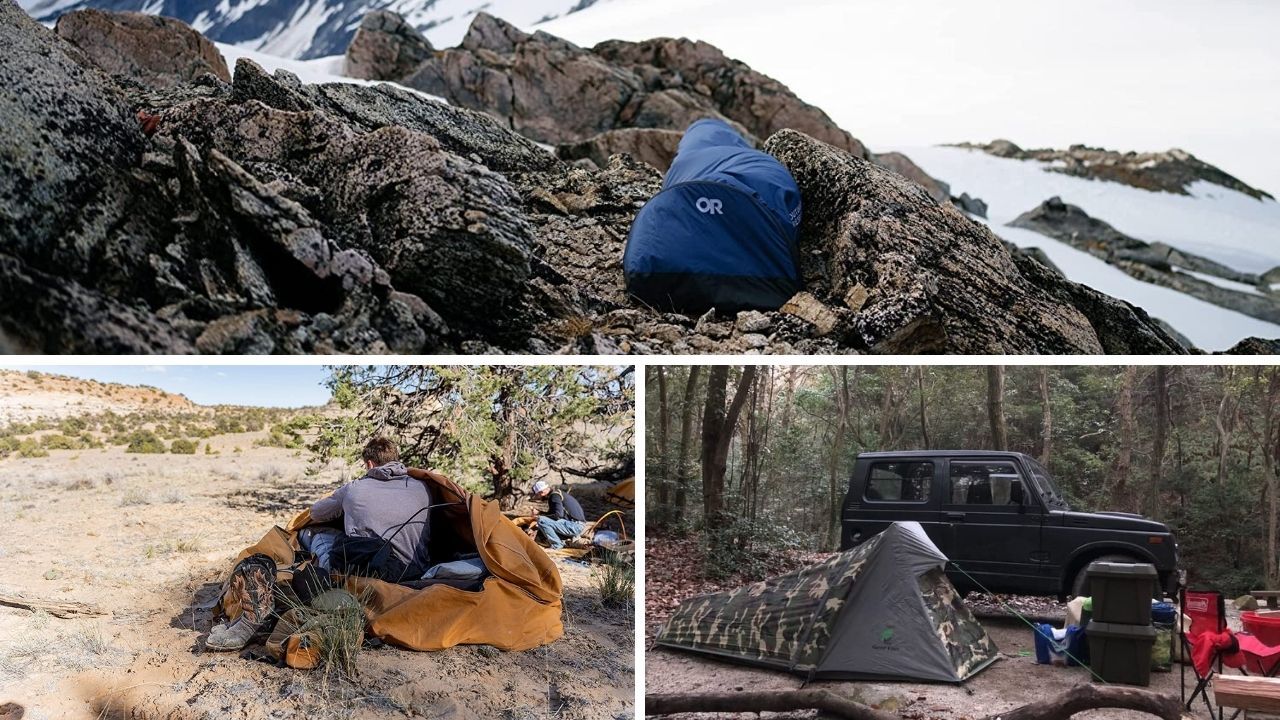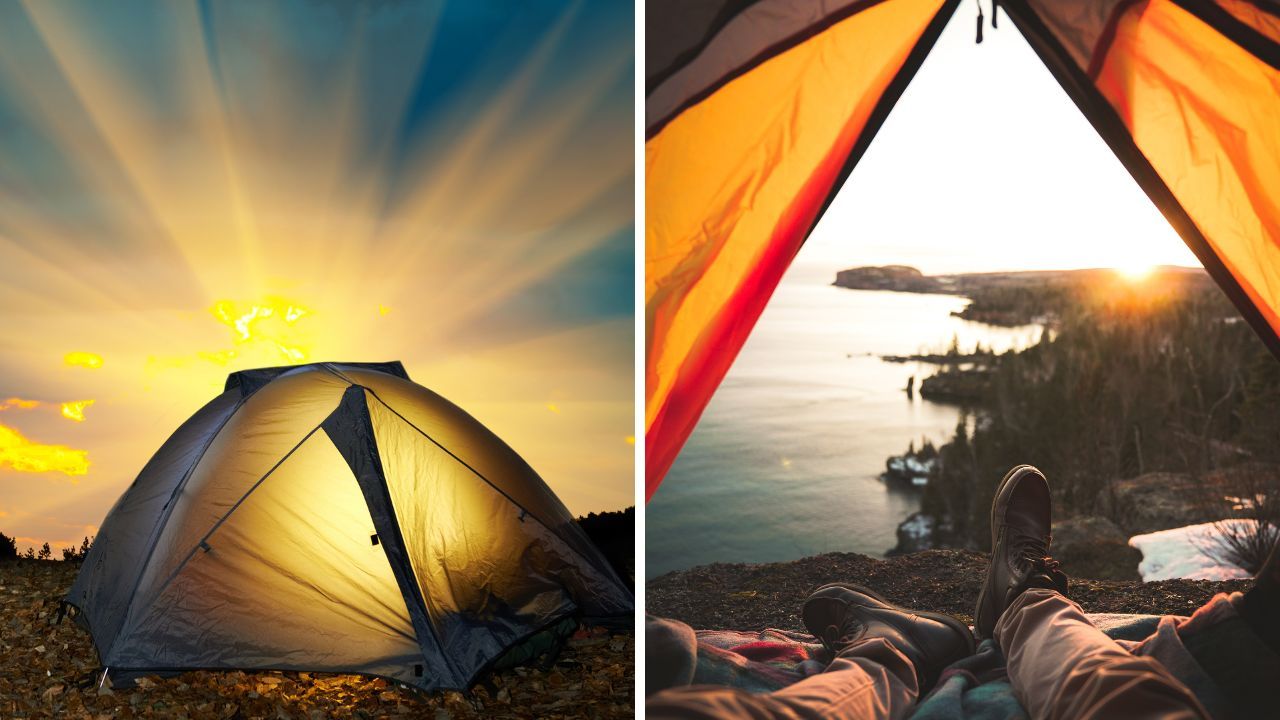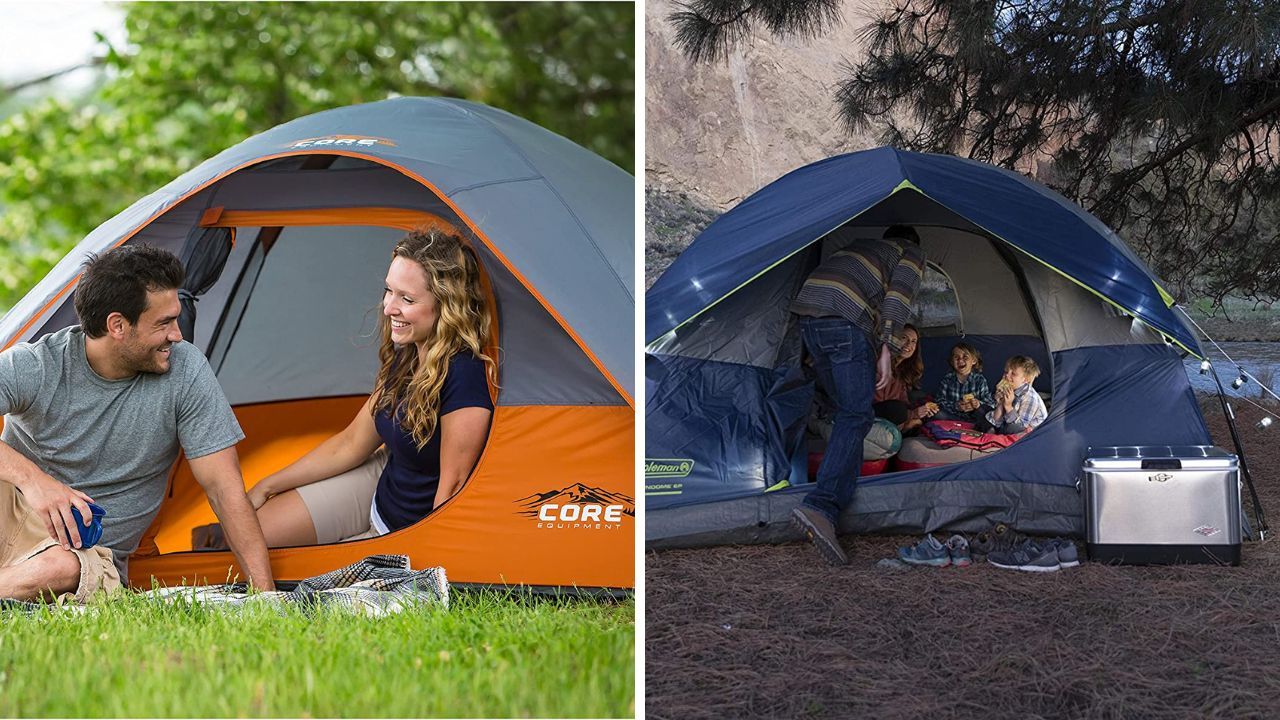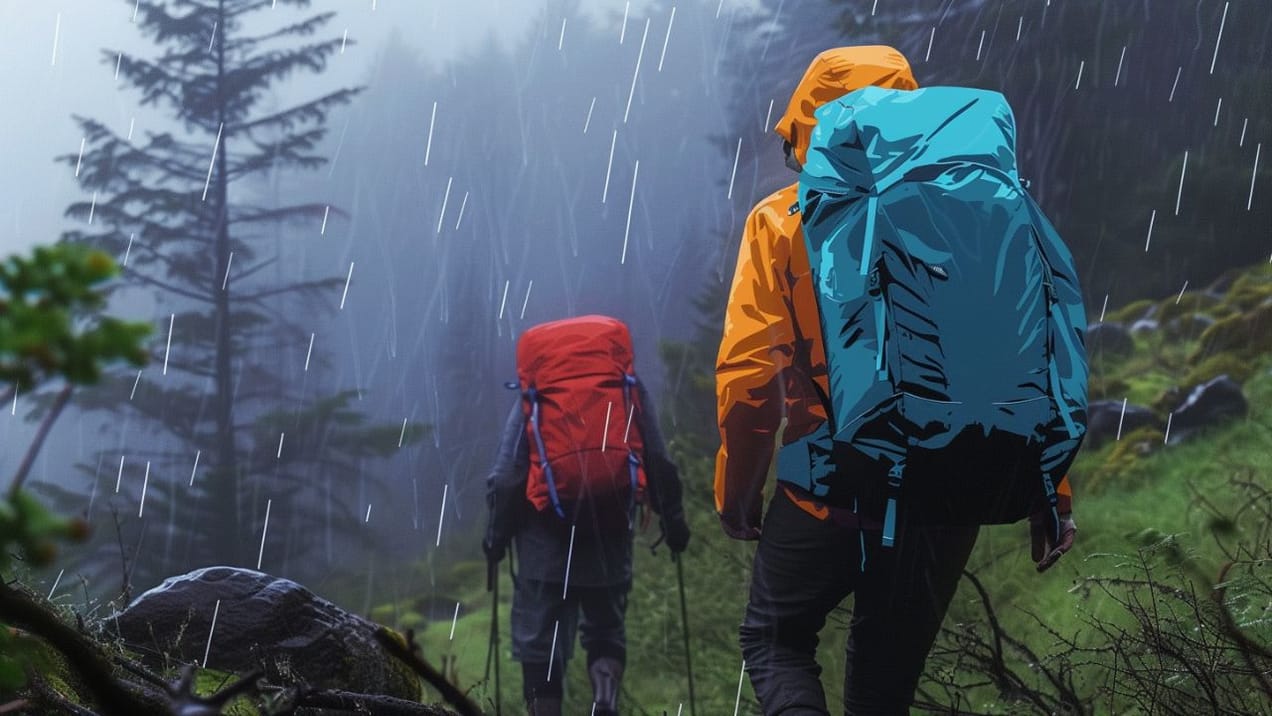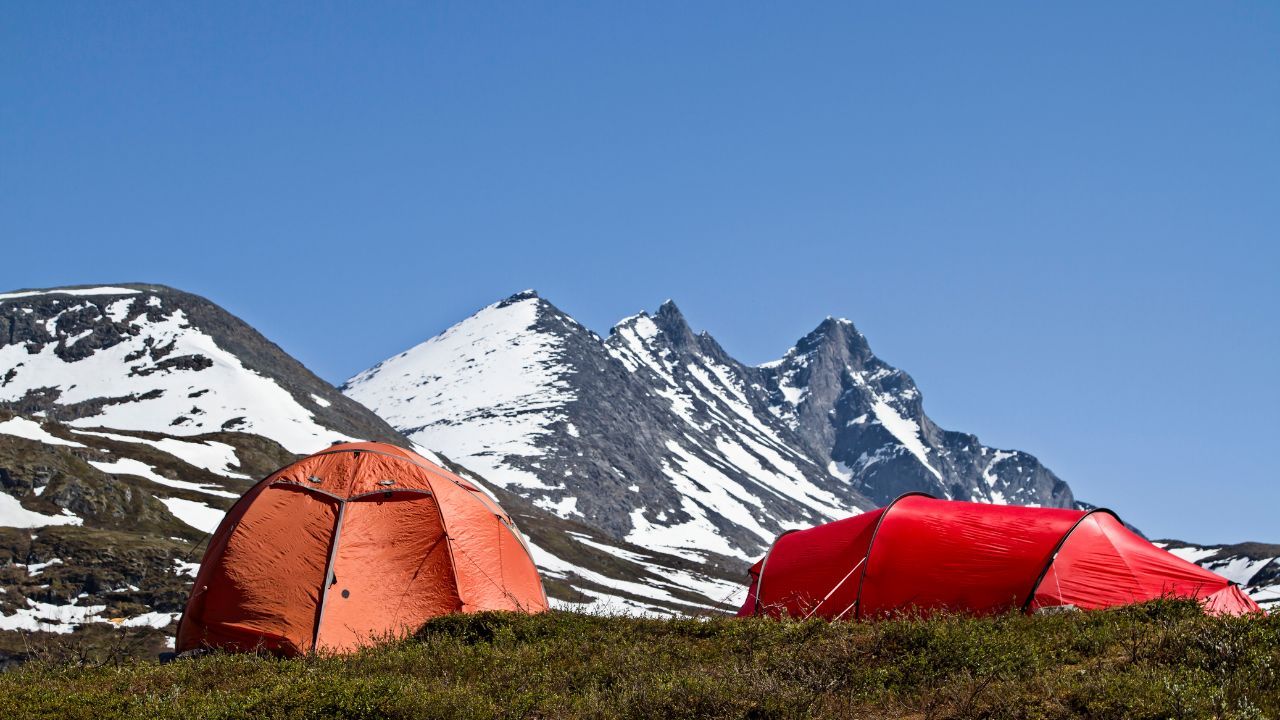
Bivy Sack vs Tent: Which is Best for Your Adventure?
Weighing Bivy Sack vs Tent for your camping needs? Our in-depth analysis provides insights to help you select the perfect shelter.
Camping and outdoor activities are more than just a hobby for many of us – they're a way of life.
There's nothing quite like leaving the hustle and bustle of city life behind and immersing yourself in the serene beauty of nature.
Whether it's hiking up a challenging trail, fishing by a tranquil lake, or simply enjoying a peaceful night under the stars, these experiences can be truly transformative.
But let's not forget one crucial aspect that can make or break your outdoor adventure: shelter.
Having a proper place to rest, sleep, and protect yourself from the elements is paramount. After all, Mother Nature, while breathtakingly beautiful, can also be unpredictable.
This brings us to the age-old debate among campers and backpackers: Bivy Sack vs Tent.
Which one is the better option? Well, let's dive into the details to find out!
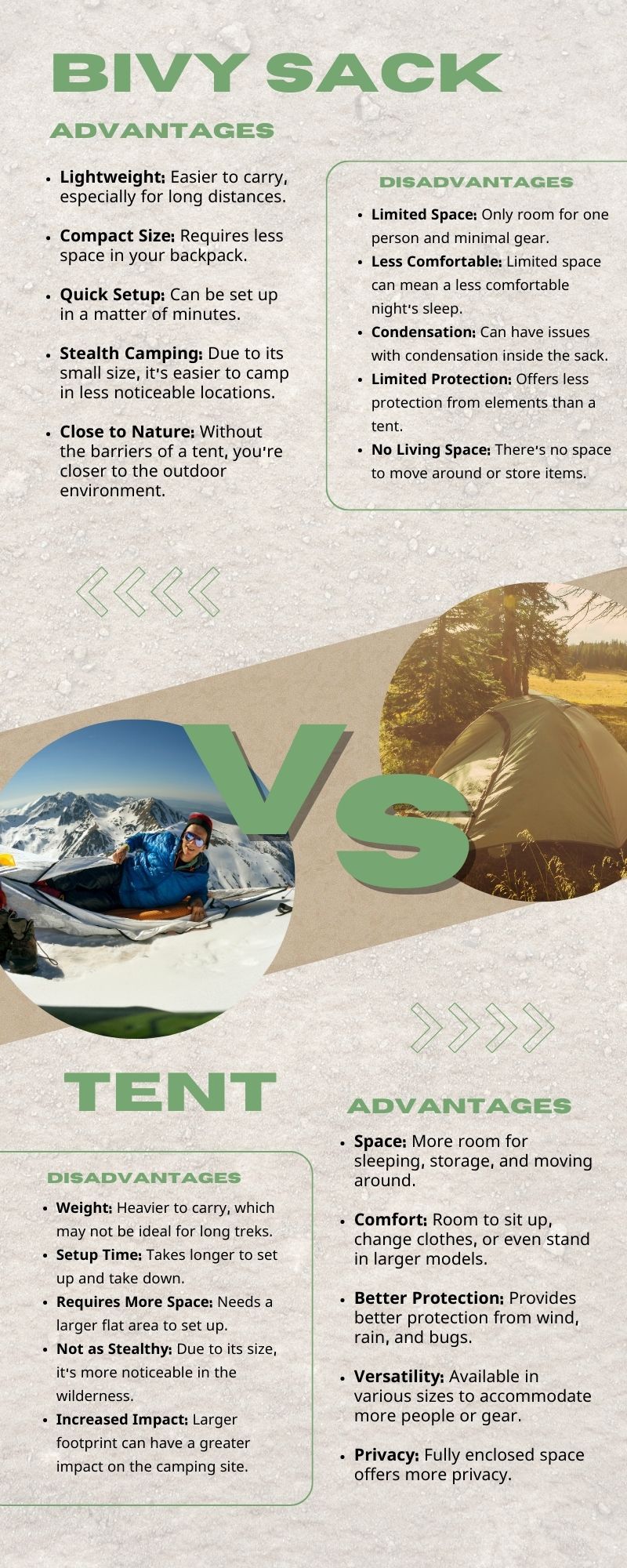
What is a Bivy Sack?
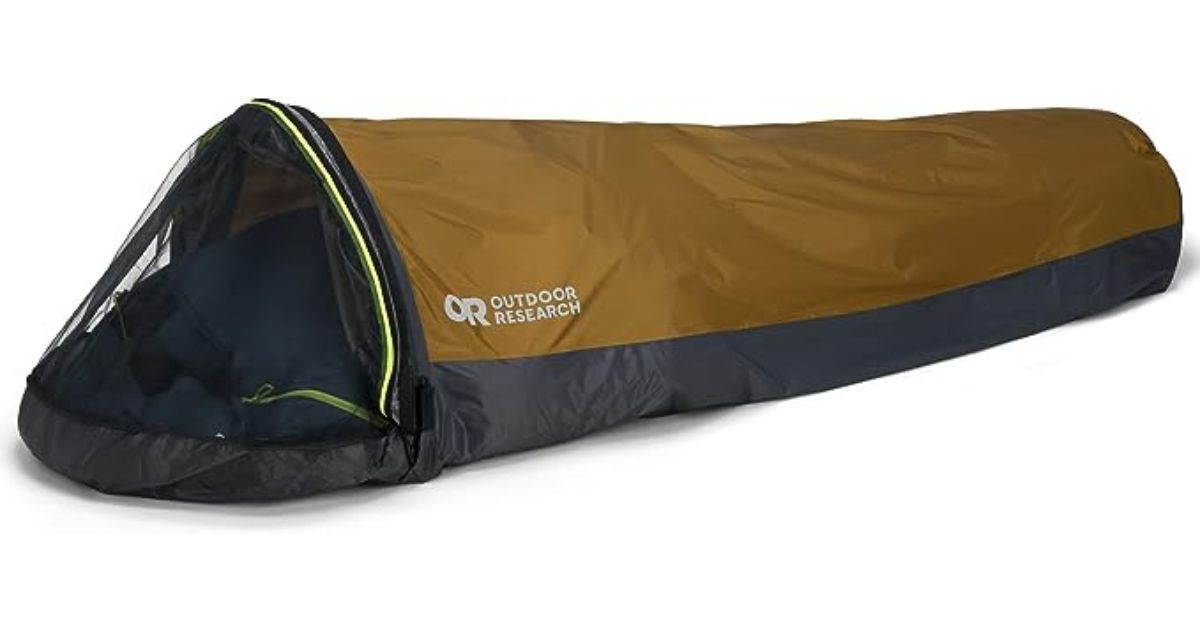
Before we delve into the comparison, it's important to understand what exactly a Bivy Sack (short for bivouac sack) is.
Imagine a waterproof, lightweight cocoon that you can slip right into, providing a shelter that’s as minimal as it gets.
That's a bivy sack for you! It's essentially a thin, lightweight bag designed to cover sleeping bags, offering you an extra layer of protection against rain, wind, and even bugs.
The concept of the bivy bag isn't new – in fact, it has quite an interesting history.
Even the lightest tents from that time were quite heavy, as they were typically constructed with canvas materials.
Over time, these sacks evolved and gained popularity among solo backpackers and ultralight campers.
There are different types of bivy sacks available in the market today, each with its own set of features.
- For instance, there are minimalist bivy sacks, which are super lightweight and compact, perfect for those who want to keep their packs light.
- Then there are hooped bivy sacks, which feature a single pole structure to give you a little more breathing space around your head. Feels almost like a small tent.
- And let's not forget emergency bivy sacks, made from heat-reflective materials, designed to protect against hypothermia – a lifesaver in survival situations!
Advantages of Bivy Sacks
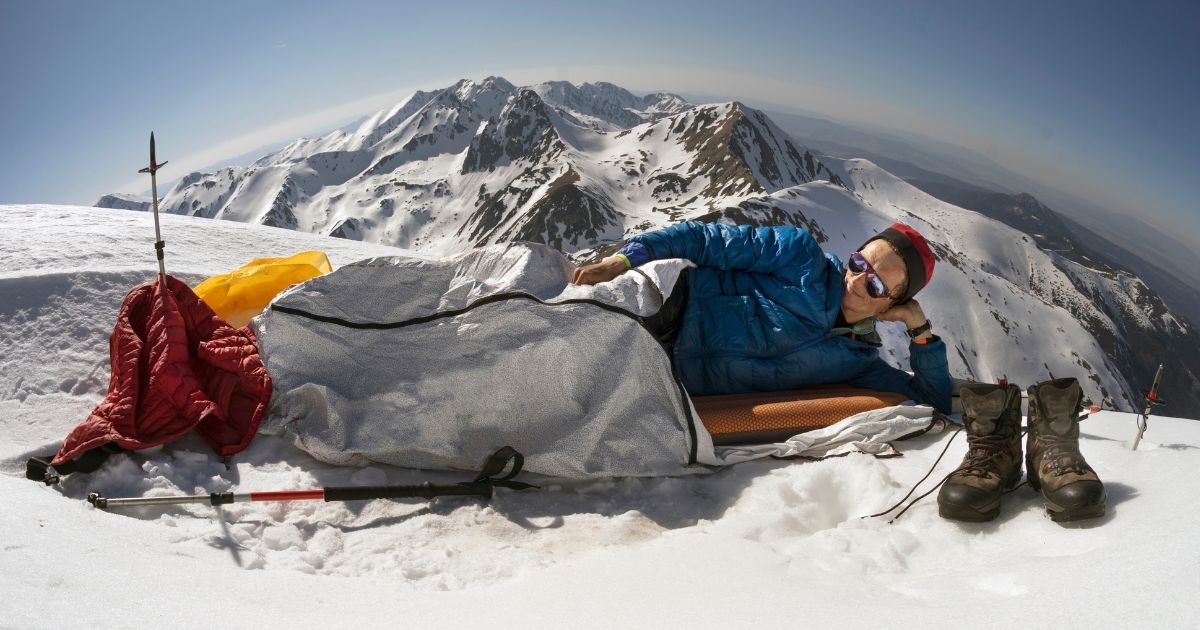
Lightweight and Easy to Carry
One of the main selling points of bivy sacks is their lightweight nature.
If you're a hiker or a backpacker who values mobility, you'll appreciate how a bivy sack can significantly lighten your load.
Remember, the lighter your pack, the easier your journey. As the renowned outdoorsman, Colin Fletcher once said, "The more you know, the less you need."
This rings true in the case of bivy sacks: understanding their functionality allows you to simplify your camping gear without compromising your safety and comfort.
Quick to Set Up and Dismantle
Time is of the essence when you're out exploring the wilderness. With a bivy sack, you don't have to worry about spending precious time setting up camp.
Unlike tents, which may require you to assemble poles and stake them into the ground, bivy sacks are incredibly straightforward to set up – just unroll and slide in your sleeping bag.
Similarly, dismantling is just as quick and easy, allowing you more time to enjoy your outdoor adventure.
Minimalist Living and Closer to Nature
There's something beautifully raw and authentic about the minimalist nature of bivy sacks.
They allow you to truly immerse yourself in the outdoors with minimal barriers between you and the stunning natural surroundings.
It's just you, your bivy sack, and the stars above – a magical experience that no fancy tent can replicate.
Disadvantages of Bivy Sacks
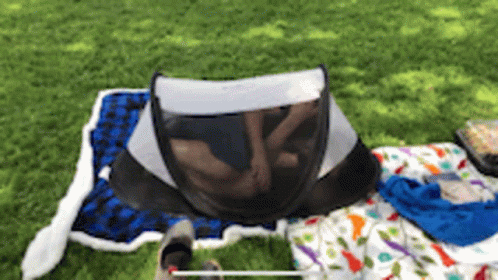
Limited Space and Comfort
While the minimalist design of a bivy sack has its charm, it also has its drawbacks. The most glaring one is the lack of space.
Condensation Issues
Another common issue with bivy sacks is condensation. Because they're designed to be waterproof, most bivy sacks don't breathe very well.
This means that the moisture from your breath and perspiration can build up inside the sack, leaving your sleeping bag damp.
Some modern bivy sacks do feature breathable fabrics and ventilation systems to combat this issue, but it's still something to consider.
Limited Protection from the Elements
While bivy sacks can provide a decent level of protection against wind and light rain, they're not the best choice for harsh weather conditions.
If you're caught in a heavy downpour or snowstorm, a bivy sack won't offer the same level of protection and comfort as a tent. Furthermore, they offer little to no protection against crawling insects or curious wildlife.
In conclusion, bivy sacks are a great option for lightweight backpacking and minimalist camping, but they do come with certain limitations.
What is a Tent?
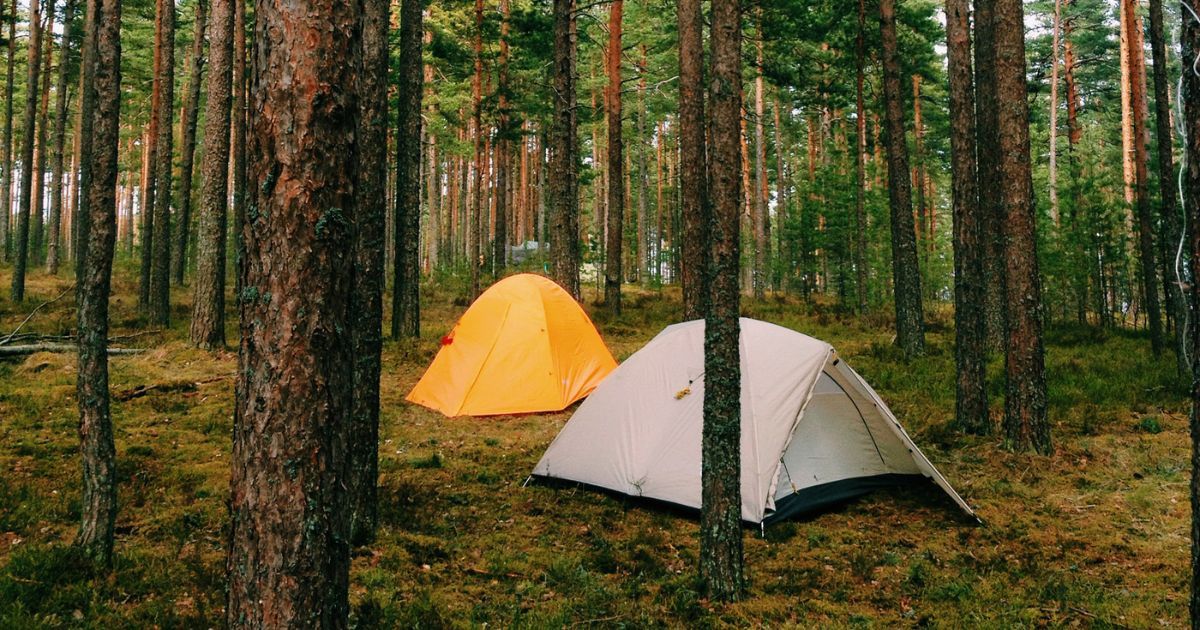
Now that we've covered what a bivy sack is, let's shift our focus to its counterpart in this outdoor shelter showdown: the Tent.
But anyone who's ever spent a night in a tent knows it's much more than that. It's your home away from home when you're out exploring the great outdoors.
The history of tents stretches back thousands of years. Our ancestors, the nomadic hunter-gatherers, used tents made from animal skins as portable homes.
Over the centuries, the design and materials of tents have evolved dramatically, but the basic concept remains the same - to provide a portable shelter.
Today, the market is flooded with an array of tents, each designed for specific needs and environments.
- There are backpacking tents, which are lightweight and compact, perfect for backpackers and hikers.
- Then there are family tents, which are larger and offer more comfort, ideal for family camping trips.
- And don't forget about expedition tents, designed to withstand harsh weather conditions, a favorite among mountaineers and polar explorers.
Advantages of Tents
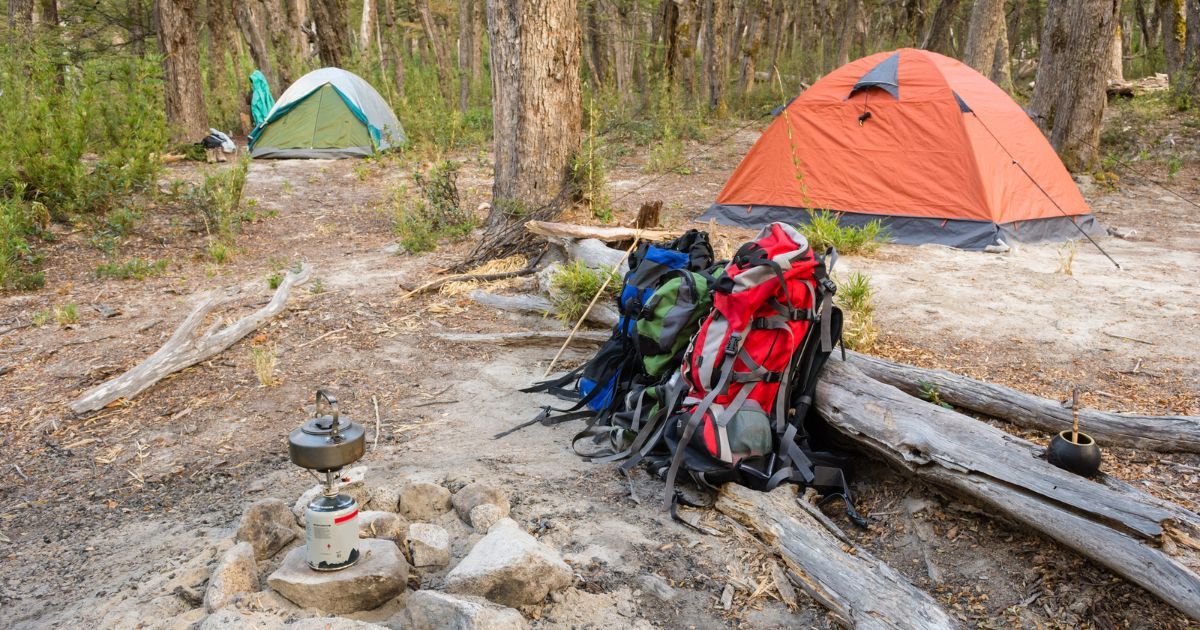
Spacious and Comfortable
One of the primary advantages of tents over bivy sacks is the space they provide.
Even the smallest one-person tent will give you room to sit up, move around, and store your gear.
Larger tents can comfortably accommodate multiple people, making them a great option for group camping trips.
Better Protection from Weather Conditions
When it comes to protecting you from the elements, tents definitely have the upper hand.
Plus, they're generally more insulated than bivy sacks, which can make a big difference on chilly nights.
Privacy and Room for Gear Storage
Last but not least, tents offer privacy – something a bivy sack can't provide.
After a long day of outdoor activities, having a private space to relax and unwind can be a real blessing.
Additionally, tents usually come with vestibules or extra space inside for storing your gear, keeping your belongings safe and dry.
So, tents seem pretty great, right? Well, they do have their pros, but like anything else, they also have their cons.
Disadvantages of Tents

Heavy and Can Be Cumbersome to Carry
While tents are undeniably comfortable, they do come with a weight penalty. Even the lightest backpacking tent will be heavier than a bivy sack.
If you're planning a long-distance hike or if you simply prefer to travel light, carrying a tent can become a burden.
Set-Up and Dismantling Can Take Time
Setting up a tent is not as straightforward as unrolling a bivy sack and placing your sleeping bag inside.
It involves assembling poles, securing the tent to the ground, and often attaching a rainfly. Dismantling and packing the tent can also be time-consuming.
This might not be an issue for some, but for others, especially those who move camp frequently, it can be a significant disadvantage.
Larger Footprint on the Environment
Tents require a larger area to set up compared to bivy sacks. This means they have a larger footprint on the environment.
If you're camping in a delicate ecosystem, using a bivy sack can help minimize your impact.
Tent vs Bivy: Factors to Consider
Duration and Location of Your Trip
If you're planning a multi-day hike in a remote area, a lighter bivy sack might be a better choice. But if you're setting up camp in one location for a few days, the comfort of a tent might be worth the extra weight.
Expected Weather Conditions
Consider the weather conditions you're likely to encounter. If you expect heavy rain or snow, a tent would provide better protection. But for dry, mild conditions, a bivy sack should suffice.
Personal Comfort Preferences
Some people love the minimalist experience of a bivy sack.
This immersive experience allows you to truly connect with nature and embrace the rugged spirit of the outdoors.
Others, including myself, prefer the comfort and space a tent provides. Consider what will make you happiest out in the wilderness.
Weight and Size Considerations
Finally, consider how much weight you're willing to carry and how much space you have in your pack.
If every ounce counts, go for a bivy sack. If you have room to spare and don't mind the extra weight, a tent could be a better option.
Frequently Asked Questions
Is a bivvy better than a tent?
Whether a bivvy sack is better than a tent largely depends on individual needs and circumstances.
If lightweight travel and minimalism are priorities, a bivvy might be better, but for comfort, space, and weather protection, a tent generally excels.
Why use a bivvy and not a tent?
One might choose to use a bivvy sack over a tent for its lightweight and compact nature, making it ideal for minimalist backpacking or mountaineering.
Additionally, a bivvy allows for a more immersive outdoor experience with a smaller footprint on the environment.
What is the disadvantage of a bivy tent?
A bivy tent can be claustrophobic when sealed, often leading to condensation even with breathable fabrics, and provides little privacy as most activities will be exposed to the elements.
Additionally, setting up and changing out of wet gear in the rain can be particularly challenging with a bivy tent (source, source, source).
How many degrees does a bivy sack add?
Bottom Line
Choosing between a bivy sack and a tent isn't a one-size-fits-all scenario. It depends on various factors, including your personal preferences, the nature of your trip, and the expected weather conditions.
Both have their pros and cons and understanding these will help you make an informed decision.
Whether you choose the minimalism of a bivy sack or the comfort of a tent, what matters most is that you enjoy your time outdoors. After all, that's what camping is all about!
We'd love to hear about your experiences with bivy sacks and tents. Which do you prefer and why? Share your stories in the comments below. If you have any questions or suggestions, feel free to drop us a line.
Looking for more outdoor gear advice? Check out our other blog posts to find the perfect gear for your next adventure. Happy camping!
Before You Go...
